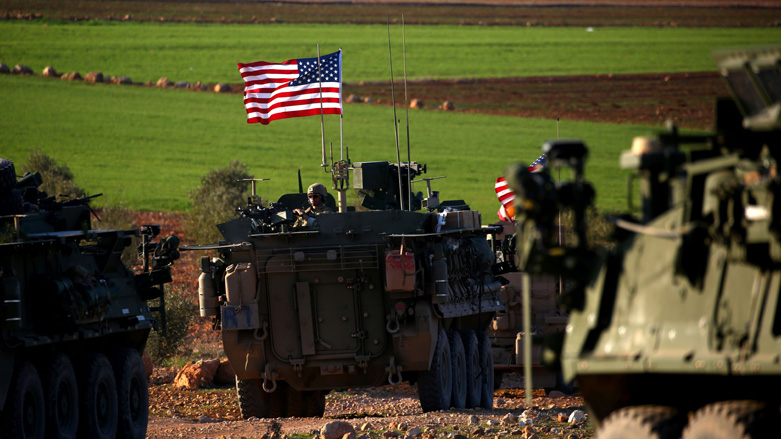US: We work only with the Military Council in Manbij

WASHINGTON DC, United States (Kurdistan 24) – As tensions between Ankara and Washington continue over US support for the Kurdish-led Syrian Democratic Forces (SDF), the Pentagon stressed on Monday that its “only official relationship in Manbij” is with the Manbij Military Council (MCC).
The MCC was created to defend the city against any attempts by the Islamic State (IS) to recover the territory after it was driven out in August 2016.
In those areas of Syria which the US and its partner forces have liberated from IS, the US has sought to create local administrative bodies that mirror the composition of the local population.
The MCC is 60% Arab, while the remaining 40% are Kurdish, Turkmen, and Circassian, according to Pentagon Spokesman, Maj. Adrian Rankine-Galloway.
Already on Jan. 20, when Turkey’s assault on the Kurdish canton of Afrin began, Turkish President Recep Tayyip Erdogan said that Manbij would be next as he vowed to “clear our country up to the Iraqi border.”
While US troops are not in Afrin, they are in Manbij, and on Sunday, CENTCOM Commander Gen. Joseph Votel gave the most authoritative public US response to Ankara as he told CNN that withdrawing US troops from Manbij is “not something we are looking into.”
No senior Turkish official has yet responded to that statement, and, it seems, tensions between Washington and Ankara have diminished somewhat since last week.
Col. Robert Manning, Director of Press Operations at the Pentagon, told reporters that Turkey is a NATO ally, and we “are in constant and close communication with them.”
In addition, White House National Security Adviser H.R. McMaster spoke on Saturday with Ibrahim Kalin, a spokesman for Erdogan.
Rankine-Galloway explained that the SDF—led by the People’s Protection Units (YPG), which Turkey considers the Syrian branch of the outlawed Kurdistan Workers’ Party (PKK)—had trained the MCC, but that the two are distinct entities.
Moreover, “we also believe that the presence of US forces is helping to calm talks about violence which could de-stabilize the situation,” Rankine-Galloway said, echoing Votel’s statement: the US believes that its presence in Manbij has a positive effect, and it does not intend to withdraw its forces.
Rankine-Galloway confirmed a CNN report that US forces in Manbij had been fired upon.
“Sporadic shooting has occurred over a period of months,” he revealed, but it has not resulted in any casualties. The last instance was two weeks ago.
US authorities hesitate to say definitively which party was behind the shooting, and they are still investigating the incidents, although Rankine-Galloway did note that the shots came from areas under the control of Turkey’s ally, the Free Syrian Army.
When asked if he saw any force protection issues for US troops around Manbij, Manning dismissed that concern.
Editing by Nadia Riva
